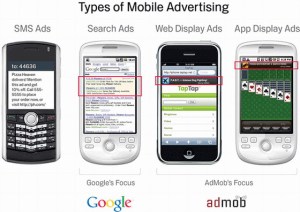
Almost six months ago Google announced plans to acquire mobile advertising company AdMob for some $750 million. It has since come out that Google’s eagerness to do the deal was in part to prevent Apple from acquiring the company (Apple went on to buy Quattro Wireless), but Google’s move triggered some gnashing of teeth in the mobile advertising industry, since the acquisition meant the two largest players in the market—Google and AdMob—were going to join up. After an investigation, however, the Fedreal Trade Commission has approved the acquisition in a five-to-nothing vote—and cited Apple’s forthcoming iAd service as reason to believe competition will still be alive in the market.
“As a result of Apple’s entry (into the market), AdMob’s success to date on the iPhone platform is unlikely to be an accurate predictor of AdMob’s competitive significance going forward, whether AdMob is owned by Google or not,” the Commission wrote in a statement (PDF).
The Commission noted that competition between Google and AdMob had intensified particularly in the last year, enabling publishers to keep a substantial share of revenue generated from selling mobile ad space, and both companies have economies of scale that give them serious advantages over smaller rivals. However, the FTC found these concerns were outweighed by Apple’s pending entry into the market: “Apple can leverage its close relationships with application developers and users, its access to a large amount of proprietary user data, and its ownership of iPhone software development tools and control over the iPhone developers’ license agreement.”
However, just because the FTC has signed off on the acquisition doesn’t mean it’s washing its hands of the whole market: the Commission promised to continue monitoring the market to ensure a competitive environment and look out for consumer interests.


